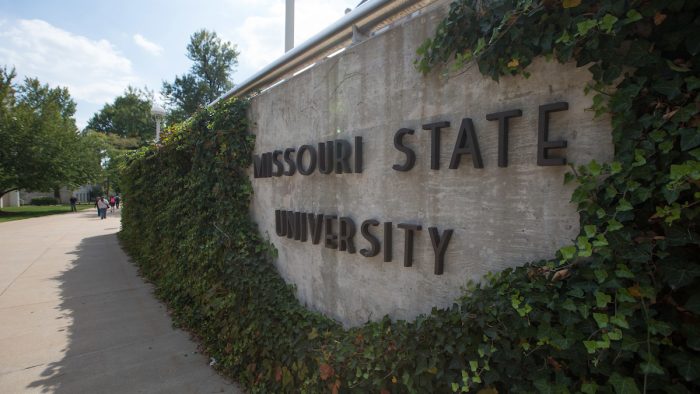Two weeks ago I traveled to Maryville and attended a meeting of the Council on Public Higher Education in Missouri (COPHE), the coalition of Missouri’s public four-year universities. It has been my privilege to chair COPHE for the past two years, and this was my final meeting as the chair.
Update from Missouri Coordinating Board for Higher Education

Throughout the past two years, the group has focused on important legislative and policy issues that impact higher education, and I believe we have appropriately handled those issues. I am confident that the new chair — Dr. Ambrose, president at University of Central Missouri — will continue the good work of COPHE for the next two years.
Following the COPHE meeting, I attended the regular meeting of the Missouri Coordinating Board for Higher Education. Highlights from that meeting include:
- The Coordinating Board approved our new MS in computer science and MSED in early childhood special education degree programs. These programs will play an important role in our efforts to increase the number of career-ready graduates.
- We received a presentation on best practices for student career readiness and graduate tracking. This will be a focus for Missouri State University and others in the coming year.
- We discussed the 2017 legislative session and fiscal year 2018 budget, including the reductions in appropriations for community colleges, public universities and other higher education projects and priorities.
- We discussed the work of two groups established by the Missouri Department of Higher Education. The first is an Administrative Cost Work Group that will focus on identifying and developing collaborative opportunities and other tools to reduce administrative costs throughout the public higher education sector. Steve Foucart will be working closely with the members of this work group. The second is a Performance Funding Task Force that will focus on reviewing the state’s current performance funding framework and recommend changes designed to improve the framework and address concerns raised by legislators and others. I will be serving on this task force and will advocate our interests to the Coordinating Board as work goes underway to modify the state’s performance funding model.
New approval process for adding academic programs

The Coordinating Board also approved the framework for a new approval process for academic programs. This decision resulted from the Higher Education System Review Task Force that I participated in over the past year.
The new process is a three-tiered framework. The first tier is staff review. This tier applies to minor program changes such as:
- deleting a program,
- changing the program’s title or Classification of Instructional Programs (CIP) code,
- or adding an option to an existing program.
For all such requests received by the first of each month, staff will process, review and report back to the requesting institution by the end of that same month.
The second tier is routine review. This tier applies to proposed programs that:
- are within an institution’s CBHE-approved mission and service region,
- do not unnecessarily duplicate an existing program in geographic area or other relevant distinction,
- will be offered at the institution’s main campus or at a CBHE-approved off-site location,
- will build on existing programs and faculty expertise,
- and can be launched with minimal expense within an institution’s current operating budget.
Proposals that fit within these parameters will be approved provisionally for a five-year period on an expedited basis.
The final tier is comprehensive review. This tier applies to proposals that constitute more significant changes and that do not meet the requirements for routine review. To qualify for approval under a comprehensive review, the institution must:
- demonstrate that it made a good faith effort to explore the feasibility of collaborating with another institution to offer the program,
- demonstrate that the program will meet a workforce need,
- and meet other threshold requirements.
These programs will be approved on an annual basis.
The next step is for the Missouri Department of Higher Education to start a rule-making process to revise the Code of State Regulations. Once rule-making is complete, the new program approval process will become law. These regulations, however, cannot overrule Missouri State’s statutory degree restrictions, so it remains as important as ever that we continue to advocate that the General Assembly pass legislation that would modify those restrictions.
Thanks for all you do for Missouri State!
- Clif’s Notes for April 23, 2024 - April 23, 2024
- Clif’s Notes for April 16, 2024 - April 16, 2024
- Clif’s Notes for April 9, 2024 - April 9, 2024
- Clif’s Notes for April 2, 2024 - April 2, 2024
- Clif’s Notes for March 26, 2024 - March 26, 2024
- Clif’s Notes for March 19, 2024 - March 19, 2024
- Clif’s Notes for March 5, 2024 - March 5, 2024
- Clif’s Notes for Feb. 27, 2024 - February 27, 2024
- Clif’s Notes for Feb. 20, 2024 - February 20, 2024
- Clif’s Notes for Feb. 13, 2024 - February 13, 2024

